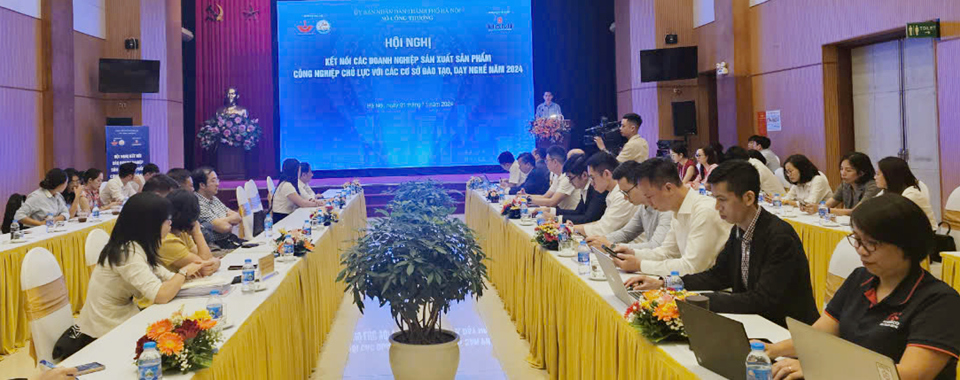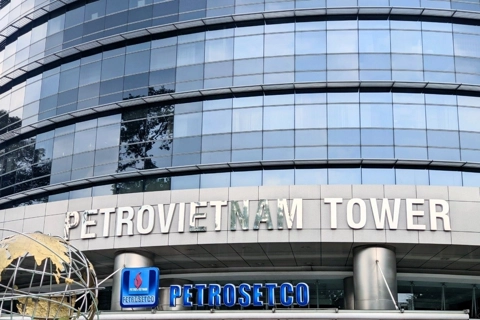Hanoi seeks partnerships to build skilled workforce for digital transformation
Vocational training institutions play important roles in developing a quality workforce prepared for large companies.
The Hanoi government hopes that local businesses will partner with educational institutions to develop skilled workers for digital transformation.
Leaders from the Hanoi Department of Industry and Trade shared their views at the conference held early this month on linking key industrial product enterprises with vocational training institutions.
| An overview of the conference. Photos: Hoai Nam/The Hanoi Times |
Part of the event is the signing of a Memorandum of Understanding between the Hanoi Association of Key Industrial Products (HAMI), the Hanoi College of Electronics and Refrigeration, and Dong A University in cooperation with Son Ha International JSC.
At the conference, educational and vocational institutions presented their potential to train high-quality workers and discussed the recruitment needs of large enterprises.
Vuong Dinh Thanh, Deputy Director of the Industrial Promotion and Development Consulting Center under the Hanoi Department of Industry and Trade, said Hanoi ranks among the top five cities in the country in terms of labor supply, which is good for development and investment attraction, especially in artificial intelligence, semiconductor technology, energy, and green technology.
He added that Hanoi is known for having a highly educated workforce, with nearly 37% of workers equipped with skills and expertise. Notably, the city's highly skilled workforce accounts for 30% of the national total.
The city has identified 105 companies as key industrial product manufacturers, employing about 100,000 workers. These companies are under great pressure to attract high-quality talent, especially in the technology sector.
Meanwhile, there is an increasing demand for talent, particularly in information technology and digital transformation, especially key positions namely data analytics and digital marketing.
"Labor is a crucial factor in driving economic growth, along with capital, resources, and technology. Therefore, the city has identified this as a key strategy for industrialization and modernization," Thanh said.
Key industrial sectors play an important role in the city's industrial growth, enhancing the competitiveness of core industrial products and accelerating the national industrialization process, according to local insiders.
| Local visitors at the 2023 Industrial Products Fair. |
Last month, several memoranda of understanding (MOUs) were signed between leading local industrial enterprises and research institutions at a conference organized by the Hanoi Department of Industry and Trade. These agreements aim to bridge the gap between scientific research and its practical application in manufacturing.
The MOUs include partnerships between the Knowledge Transfer and Startup Support Center and HAMI, as well as agreements with the Industrial Promotion and Development Consultancy Center (DOIT). In addition, Phenikaa University has partnered with HAMI on vocational training.
Currently, Hanoi has 289 products recognized as key industrial commodities in various sectors, including machinery, electronics, information technology, textiles and footwear, agricultural and food processing, chemicals, rubber, plastics, pharmaceuticals, construction materials, and handicrafts. Each year, the city's key industrial manufacturers generate nearly VND200 trillion (US$8 billion), accounting for 35% of the city's total industrial output. Their export revenue approaches US$2 billion and they employ about 80,000 workers. |














